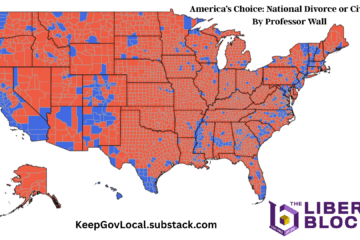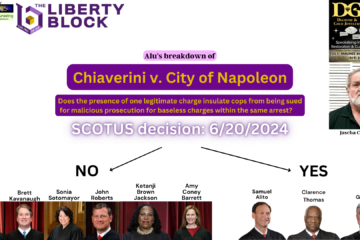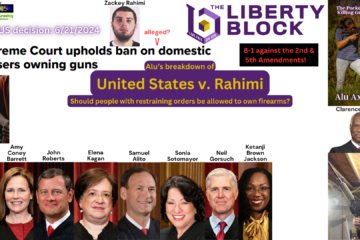There is no effective moral or emotional argument that government (especially federal) should forcefully take someone’s money and give it to another. In light of this being enforced ultimately by violence, it is the definition of armed robbery.
In fact, anyone with morals should agree that the right way to help people who sincerely will suffer without help is to allow charities to do what they do best. I don’t mind giving voluntarily to a person or a charity that I know and trust. In that instance, I make a CONSCIOUS AND VOLUNTARY decision to give some of my money away to an entity of my choosing. If next week I have zero dollars to spare, I will not give charity.
Theft/taxation is taken from individuals INVOLUNTARILY. If the person does not give the government/thief their money, they will be placed in prison/killed. After this occurs, I don’t feel quite as generous as I do after giving charity.
“But Alu, most people are stingy!”
There are many good answers to this one:
1) Free Individuals give charity in unique ways: I have long admitted that generosity was NOT my strength. Yet I donated to 2 different charities in the past 4 days, and I gave away 3 years of my life caring for the sick and elderly in my community. Imagine how much charity is given throughout the US by people who are actually generous!
2) Voluntary charity is much more efficient: When you pay taxes towards social security, food stamps, or Medicare, a large percentage of that $100 a week goes towards the thousands of employees who are tasked with the stealing and appropriating of the funds. When you give charity, all of that money gets to the persons in need. This can literally be proven because when you hand money to an individual, 100% of that money becomes theirs.
3) There is a lot of charity given annually in the US. Even enough to rival government programs: The ‘greedy capitalists’ throughout the US whom you hate gave 373 billion dollars in charity last year. Nobody forced them to. And it was surely used more efficiently than government programs.
4) Because charity is voluntary, it holds the recipients accountable:
When people give to others, they have a natural interest in how that money may be spent. If you give to a beggar and you see him spend that money on cocaine, you have the OPTION to not give him money again tomorrow. You can keep that money or give it to another beggar who will use it for a new shirt and to pay for transport to a job interview.
In the case of government redistribution of wealth on the other hand, we have zero influence over who is the beneficiary of our money or how they spend it, because the government steals it from us and does with it what it wants. Many of us have seen how some beneficiaries of government money spend it. They may spend it on drugs, soda, or even expensive Nike’s.
5) Programs like SNAP have been shown to not work: Hopefully, We all agree that the intention of welfare/redistribution programs is to help people out of poverty and back into the workforce, right? Well, if I can prove that over the last decade, food stamps have not helped anyone out of poverty, would you at least reconsider whether government should forcefully redistribute wealth?
When Obama took office, There were around 32 million Americans receiving food stamps, directly from the paychecks of others. By 2013, that number had increased to around 48 million people requiring food stamps. The simple conclusion would be that giving people free money doesn’t make them want to find a job. In fact, it makes others-16 million others-want to join this program.
If you like government sources, the USDA states that the number of people on SNAP increased from 28 million to 44 million over the past 8 years. In dollars, that increase is from $38,000,000,000 to $71,000,000,000. That’s in billions. The SNAP budget was only $250 million when it was created in 1969. If the year were 1969, I would still be fighting against SNAP because on principle, I am against theft.
“But Alu, the framers of the Constitution obviously didn’t consider poor people when they established property rights!”
- “The government of the United States is a definite government, confined to specified objects. It is not like state governments, whose powers are more general. Charity is no part of the legislative duty of the government.”
- — James Madison, speech in the House of Representatives, January 10, 1794
- “I cannot find any authority in the Constitution for public charity. [To approve the measure] would be contrary to the letter and spirit of the Constitution and subversive to the whole theory upon which the Union of these States is founded.”
- — President Franklin Pierce’s 1854 veto of a measure to help the mentally ill.
They did, but that’s irrelevant of ownership. Ownership is final. If I own property, no man nor government can take it by force, regardless of how poor or needy the recipient may be. Theft is not the answer. There was a time when Americans stood up to mass property theft. It was around 240 years ago, and it created the greatest nation in history.
Socialism uses force. The free market runs on voluntaryism. Which will you choose?
This article does not necessarily reflect the opinions of The Liberty Block or any of its members. We welcome all forms of serious feedback and debate.


